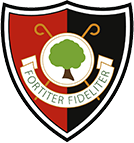Assessment, Recording and Reporting
At Oxted School teachers use assessment to understand a student’s strengths and identify any gaps in learning. Teachers use regular formative assessment (while learning is happening in lessons) and summative assessment (after learning has happened i.e. in tests and exams), from which they draw conclusions about each student’s learning to inform and adapt future lessons.
Throughout the year students complete cumulative, summative assessments. These assessments check for retention and application of a broader knowledge and skills base throughout courses, sampling all knowledge that has been taught to date, not just the most recent unit of work.
Students are provided with an examination booklet each term to support their preparation. The booklet outlines the exam content for each subject and gives specific revision strategies to help students be successful.
Assessing Students in Key Stage 3
Assessing Students in Key Stage 4 & 5



